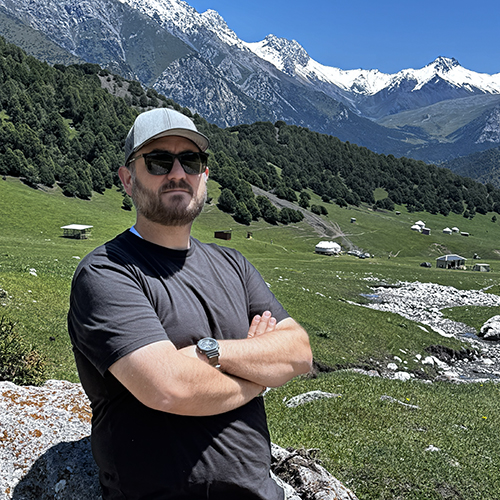A prize claimed by renowned conservationists such as David Attenborough and directors of some of the world's largest botanic gardens has been awarded to Estella Leopold, a University of Washington professor emeritus of biology, forest resources, and quaternary research.
The International Cosmos Prize, sponsored by Japan's Expo '90 Foundation, honors those who further the "harmonious coexistence between nature and mankind," according to the foundation. The prize carries a cash award of 40 million yen—nearly $500,000—and goes to just one individual or team each year.
Leopold, 83, has been teaching and conducting research for more than 60 years, 35 of them at the UW. She pioneered the use of fossilized pollen and spores in North America to understand how plants and ecosystems respond over eons to such things as climate change.

Daughter of Aldo Leopold, known for proposing the "land ethic" that individuals are responsible for the health of the land, Estella Leopold "has dedicated herself to the preservation and stewardship of natural landscapes," the prize committee wrote.
Leopold marshaled 20 nonprofit groups in a six-year fight to gain national monument status for Colorado's Florissant fossil beds, which contain 35 million-year-old fossils. She also was among those whose pleas to leave Mount St. Helens alone after the 1980 eruption led to it becoming the Forest Service's first national monument—a natural laboratory where scientists can study landscape recovery. In addition, Leopold has served on the national boards of organizations such as the National Audubon Society and the Environmental Defense Fund, and on governor advisory panels concerning oil shale and nuclear waste management.
"The College of Arts and Sciences could not be prouder or happier to count Estella Leopold as both one of our most distinguished faculty members and one of our closest friends," says Ana Mari Cauce, dean of Arts and Sciences. "Throughout her career she has been a fierce advocate for science, for the environment, and for the need to make connections between these two passions. The committee could not have picked a better recipient for this award. It brings honor to Estella, and Estella brings honor to the award."
More Stories

AI in the Classroom? For Faculty, It's Complicated
Three College of Arts & Sciences professors discuss the impact of AI on their teaching and on student learning. The consensus? It’s complicated.

A Sports Obsession Inspires a Career
Thuc Nhi Nguyen got her start the UW Daily. Now she's a sports reporter for Los Angeles Times, writing about the Lakers and the Olympics.

Through Soil Science, an Adventure in Kyrgyzstan
Chemistry PhD alum Jonathan Cox spent most of 2025 in Kyrgyzstan, helping farmers improve their soil—and their crops—through soil testing.